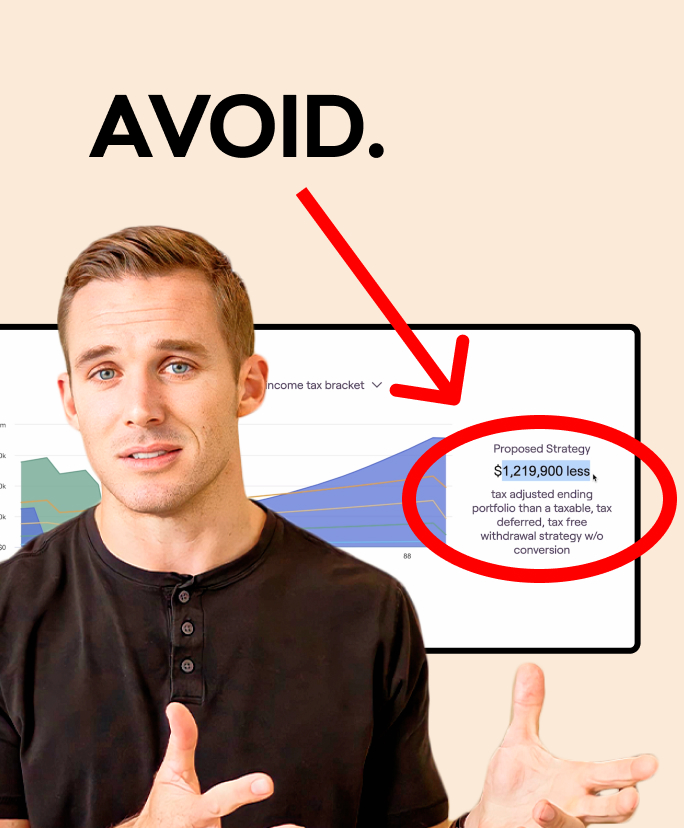For many, retiring at 65 is the ultimate goal. After decades of hard work, it seems like the perfect time to step away, travel, and enjoy the life you’ve built. But what if retiring at 65 is actually a much bigger mistake than you realize? What if traditional retirement planning is missing something critical?
At first glance, everything might appear to be on track financially. You’ve saved diligently, your investment portfolio is growing, and your Social Security benefits are set. But beneath the surface lies a risk that most financial plans overlook—healthy life expectancy. It’s not just about how long you live, but how many of those years you can truly enjoy.
Let’s take a closer look at this often-misunderstood risk and how you can make the most of your healthiest years in retirement.
The Financial Plan That Looked Perfect—Until It Wasn’t
Scott and Brooke, both 60 years old, had built a strong financial foundation. They had nearly $2 million saved, significant Social Security benefits, and a clear vision for their retirement years. Their plan was simple: retire at 65 and enjoy an active lifestyle, traveling, golfing, and spending quality time with family and friends.
On paper, everything checked out. Their portfolio was projected to grow throughout retirement, and their probability of financial success was high. But the risk wasn’t in their finances—it was in how they viewed life expectancy.
Why Life Expectancy is the Wrong Focus
Many financial plans assume a standard life expectancy—often around 85 to 90 years old. But there’s a crucial distinction between life expectancy and healthy life expectancy.
- A 65-year-old man has an average life expectancy of 82-83 years.
- A 65-year-old woman has an average life expectancy of 85-86 years.
- However, healthy life expectancy—the years you can expect to live without major illness or disability—is significantly lower.
In the U.S., healthy life expectancy is just 66 years. That means that while you may live well into your 80s or 90s, your ability to fully enjoy those years—traveling, playing golf, hiking, or being active with grandchildren—may decline far sooner than you expect.
What This Means for Your Retirement Plan
If you plan your retirement assuming you’ll have equal energy and mobility throughout your later years, you may be making a critical mistake. Imagine deferring travel until you’re 70, only to realize that your body no longer allows you to enjoy those experiences the way you once envisioned.
Traditional financial planning often assumes that retirement spending remains steady or even declines as you age. But what’s often missing from these projections is the reality that spending patterns shift:
- Your 60s and early 70s: Active years filled with travel, hobbies, and adventure.
- Mid-70s to 80s: A slowdown in discretionary spending as health limitations arise.
- Late 80s and beyond: Higher healthcare and long-term care costs replacing discretionary spending.
If you wait too long to retire or delay doing the things you love, you may miss your healthiest, most active years.
The Key to a Fulfilling Retirement: Prioritizing Health
The good news? You don’t have to fit the average statistics. Healthy life expectancy is largely influenced by personal choices. Research shows that 77% of Americans do not engage in regular exercise—meaning the majority of people are unknowingly reducing their ability to enjoy retirement.
Taking care of your health today isn’t just about living longer; it’s about maximizing the years where you can do what you love. Here’s why prioritizing health is one of the smartest investments you can make in retirement:
- Exercise benefits you today and in the future. Unlike financial planning—where saving means sacrificing spending today—exercise improves both your present and future quality of life.
- Physical activity improves mental health. Depression and cognitive decline are common in retirement, but staying active can significantly reduce these risks.
- Better health means more options. The more mobile and active you are, the more freedom you’ll have to pursue the experiences that matter most to you.
Don’t Wait to Start Doing What You Love
Another common mistake? Putting off the things you truly want to do. Many retirees find themselves lost after leaving the workforce, realizing they never practiced how to spend their newfound freedom.
If you think you’ll spend your retirement traveling or playing a sport like pickleball, start now. By integrating these activities into your life before retirement, you ensure that:
- You truly enjoy them and aren’t just following someone else’s retirement blueprint.
- You build the habits and routines that make for a smoother transition.
- You maximize the time you have to do what you love while you’re at your healthiest.
The Importance of a Retirement Plan That Aligns with Your Life
Many people work until 65 or later because they think they have to. But for some, this decision is based more on a lack of planning than actual financial need. If you’ve never run the numbers or stress-tested different retirement scenarios, you may be working longer than necessary.
A strong retirement plan should do more than just ensure financial security—it should also ensure you get the most out of your healthiest years.
Consider these questions:
- Could you retire earlier and still meet your financial goals?
- Would cutting back on work now allow you to enjoy more of your best years without sacrificing future security?
- Are you waiting too long to take advantage of the freedom that retirement offers?
By running different scenarios, you may find that retiring at 63 instead of 65 doesn’t impact your long-term financial health significantly—but it gives you two extra years of active, fulfilling retirement.
Final Thoughts: Make the Most of Retirement by Acting Today
Retirement isn’t just about having enough money—it’s about having the health and time to enjoy it. Scott and Brooke’s story is a reminder that financial success alone isn’t enough. The real goal is to create a retirement plan that allows you to live fully while you’re at your best.
If you’re nearing retirement, take the time to evaluate not just when you can retire, but when you should. Prioritize your health, start doing what you love today, and ensure your financial plan aligns with your real-life goals—not just arbitrary retirement milestones.
If you need help running the numbers or figuring out if you’re on track for the retirement you truly want, let’s talk. Because the biggest retirement mistake isn’t running out of money—it’s running out of time to enjoy it.


